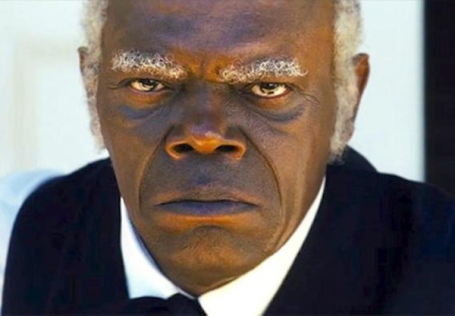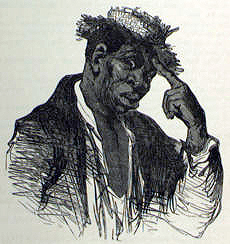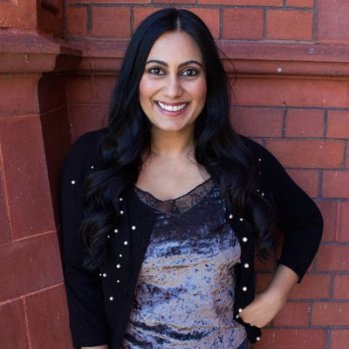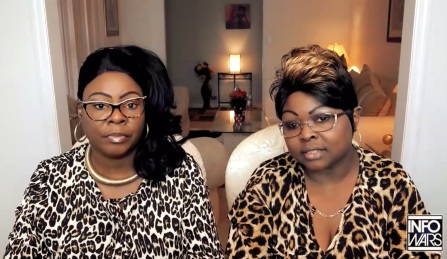There are few more hurtful terms for black figures in the public eye than ‘Uncle Tom’, ‘Coon’, or ‘Coconut’, Nels Abbey explores the context of this term and its modern-day use
@nelsabbey
“The slavemaster took Tom and dressed him well, and fed him well, and even gave him a little education — a little education; gave him a long coat and a top hat and made all the other slaves look up to him. Then he used Tom to control them.” – Malcolm X
It’s Black History Month. And, sadly, not all black history is glamorous and glorious. A lot of it is cautionary. We celebrate the parts that should be celebrated and learn the lessons of the cautionary parts. And on that note, there is a lot to be learned. Especially in relation to who played what role in our quest for freedom and equality.
Nowadays we like to think all of our great-great grandparents were Funmilayo Ransome-Kutis, Kwame Nkrumahs, Harriet Tubmans, Mandelas or members of the Mau Mau during the days of slavery, colonialism and apartheid. Well, quite a few of them were not. Sadly, quite a few of them were Bosambos (a colonial lackey Paul Robeson was duped into portraying in the 1935 film Sanders of the River) and, indeed, Uncle Toms.
But what exactly is an Uncle Tom?
When stripped to its modern bones (as opposed to its original literary roots as imagined by Harriet Beecher Stowe): the term Uncle Tom now refers to a person who colludes with their own communal oppression for personal (often petty) gain. The black  person so bought into their own debasement that they would happily sell-out their collective liberation attempts for a bowl or porridge or a biscuit. Modern Hollywood folklore portrays the Uncle Tom as the most ruthless and cunning being on the plantation (Samuel L Jackson’s character in Django Unchained illustrates this perfectly), as internalised self-hatred personified (or a performance thereof). Given the social order and their natural outsider status, the Uncle Tom had to go further than anyone else in order to prove their trustworthiness and maintain their position. Hence, they were harder on their fellow oppressed than even the oppressor.
person so bought into their own debasement that they would happily sell-out their collective liberation attempts for a bowl or porridge or a biscuit. Modern Hollywood folklore portrays the Uncle Tom as the most ruthless and cunning being on the plantation (Samuel L Jackson’s character in Django Unchained illustrates this perfectly), as internalised self-hatred personified (or a performance thereof). Given the social order and their natural outsider status, the Uncle Tom had to go further than anyone else in order to prove their trustworthiness and maintain their position. Hence, they were harder on their fellow oppressed than even the oppressor.
So regardless of the oppression, the injustice, the hostility, indeed the hostile environment – the Uncle Tom would happily collaborate with it, justify it, intensify it or just remain silent in the face of it. As explicit colonialism, slavery and apartheid faded into implicitness, so did Uncle Tom-ism. The more things change, however, the more they stay the same…
into implicitness, so did Uncle Tom-ism. The more things change, however, the more they stay the same…
Modern politics: when you are a black or brown person in the west going into politics (or any endeavour for that matter) you have to decide your own position on, and approach to, racism. And you have to live (or die) by that position. Some parties will have a strong anti-racism stance and that will make your decision and life much easier. Other parties are straight-up racist and if you go into them then you’d be naïve to think that you’re going to change them. In fact, you may have to prove yourself to be a racist in black or brown face, indeed, to be an Uncle Tom, to get on.
Case in point: Shazia Awan-Scully, a Welsh politician from an Asian background, explained on BBC Newsnight recently that during a parliamentary selection interview  for the Conservative Party (in which she was the only non-white face in sight) she was asked – out the gate – for her views about the British Raj and then on the Black Police Association. In relation to the latter, she was asked “why do you people need it?”, a question which was accompanied by finger wagging. Shazia left the meeting and burst into tears in her car. A friend later informed her not to complain or raise the matter if she had any political aspirations. Her friend was right.
for the Conservative Party (in which she was the only non-white face in sight) she was asked – out the gate – for her views about the British Raj and then on the Black Police Association. In relation to the latter, she was asked “why do you people need it?”, a question which was accompanied by finger wagging. Shazia left the meeting and burst into tears in her car. A friend later informed her not to complain or raise the matter if she had any political aspirations. Her friend was right.
Context: Shazia was being invited to Uncle Tom-dom. “Racism is a myth – black on black crime is the issue”, “We need more stop & search but only if it’s topped off with a hanging”, “Immigration cut to tens of thousands? Pah! It’s time for repatriations”, “Where I’m from, girls getting pregnant for council flats is a cottage industry”, “Hinduism and Islam risk turning Britain into a cesspool of crime” … is the calibre of red meat they were after. The interviewers clearly wanted her to demonstrate her ability and willingness to collaborate with her own ancestral and continued communal subjugation in order to demonstrate her suitability for being shortlisted. They wanted to ensure she was brown in skin only, to see if she was a Bounty or a Twirl. She was a Twirl. She didn’t give them what they wanted and left the party.
But what if Shazia did give it to them? What if she had developed and internalised such self-hatred and/or ruthless ambition that she said what they wanted to hear and subsequently meant what she said to them? What if she became an MP, retained these thoughts, expressed them in public and provided succour and support to the subjugation of minority ethnic communities in this country? What if Shazia chose to be an Uncle Tom, a Bounty, a coconut?
Luckily and unluckily you don’t need to imagine what would happen. You just need to look at what is happening. Many people of colour in parliament (and beyond) today do this dance on a daily basis.
- Black citizens are being deported ‘in error’?: There is a black MP who is willing to defend it.
- Black people are subjected to police violence? There is a black MP who is willing to defend it.
- Brown people are being collectively blamed for the failures of a few of them? There is a brown MP willing to launch an inquiry into ‘brown culture’.
On and on it goes. Yes, we know minority ethnic MPs all carry the heavy burden of representation. Some of these people instead chose to lighten the burden by abandoning and betraying the communities for personal gain. The ones who do are very dangerous to people from the backgrounds they emerged from.
There are of course times when a black or brown MP may have an entirely different perspective to the majority of communities from which they emerged. That’s life. There are times where they may need to play the ‘game’ a little. That’s politics. But that differs to just cheaply collaborating with their own communal suppression at the drop of any hat. That’s cooning. And contrary to what Kanye West would have you believe: slavery is not a choice. Cooning is. He should know.
‘Cooning’ – which in modern black parlance means: kowtowing to and colluding with racism for personal gain – is a political choice. People chose to coon and Tom because they’re after the associated rewards of cooning and Toming regardless of the impact it may have on the community they came from. Western societies love people who chose to coon. They empower them in life, whilst the people who do the opposite of cooning (i.e. stand up to racism) are only praised and considered ‘safe’ when they’re six feet under.
So how do these marginalised communities fight back against the people who have sold them out? How do they regulate themselves? If they reward people who do well for them by commending, defending, honouring and funding them how do they punish those who sell them down the river?
Well, they often use blunt language, harshly descriptive terms and historical references – like is done in all communities. In black and some Asian communities, they use terms such as ‘Uncle Tom’, ‘Coon’, ‘coconut’, ‘Bounty’, ‘Bosambo’, ‘Omarosa’ (the latter being a recent addition and possible subtraction). Don’t get me wrong: these are not polite or politically sweet terms. They are not supposed to be. They are, however, when used within the community – certainly not racist terms. They are intra-communal regulatory mechanisms. They simply mean: “you are colluding with racism. We are therefore extremely unhappy with your conduct towards us and we feel you are selling us out for your own personal (petty or political) gain” or “you are behaving like the worst of our oppressors”. These are simply terms of political chastisement within ethnic communities.
Yes, these terms have deep intra-racial connotations. But owing to the ‘intra’ part: they’re not racist. As was stated before: they’re regulatory. Like the ‘n-word’ (which is now used as a term of intra-communal endearment in the black community) if these very terms were used by, say, a white person to describe a black person they would certainly be racist. But when Tyrone calls Tyson (his local MP who happens to black) a “coconut” for helping to cover up the police’s killing of Tyrese: it is not racist. It is regulatory, chastising, demeriting, disassociating, dishonouring, disgracing… but it’s certainly not racist. It is not the same as when EDL Doug calls Tyson the black MP a “coconut” for speaking in a polished manner. Context of usage is critical.
Case in point: a black candidate running for high office in London has had his extensive

catalogue of horrendous statements and ideas unearthed. Statements he made in his mid to late thirties (he is now pushing 50). The Evening Standard, London’s main paper chose not to focus on his statements in their reporting of the affair. But to highlight that some people called him ‘racist terms’ such as “Uncle Tom” on Twitter.
If the people calling said candidate an Uncle Tom were black then the Evening Standard’s gap in communal regulation/relations was used to bat away communal concerns about a politician’s catalogue of statements that may be damaging to parts of the community.
Where the application of these terms fails to pass intellectual, moral and indeed racial muster: we, the community, know. And we have ‘counter-regulatory’ measures for people who use these terms with a little too much glee and swiftness. We call them out, scold or shun them.
Political parties largely compromising members of majority communities cannot leverage their power (and their racism) to handpick members of minority communities (sometimes desperate mediocrities) to do their bidding against the interests of minority communities and then tie the hands and tongues of ethnic minorities behind their backs by saying some of these strong chastising terms are ‘racist’. You can’t be judge, jury, executioner, petitioner, godfather and father of the original ‘criminal’.
It is deeply unfair, not to mention actually vehemently racist, to handpick and unleash

clownish stooges such as Diamond & Silk; Sheriff David Clarke, practically anyone highlighted as a ‘good ethnic’ by David Goodhart as a Pastor Darrell C. Scott, etc on a marginalised community and then dictate what terms said marginalised community can use to criticise and hold them to account. You cannot empower the voices of opporcoonists to the point of dominance and then expect us, the community, not to call them opporcoonists.
In the words of Lady Thatcher: “No, no… no.”
Terms such as ‘coconut’, ‘coon’ and ‘Uncle Tom’, ‘Uncle Ruckus’, ‘Bounty’, ‘choc-ice’, etc are not racist when uttered on a legitimate basis within the community. They’re necessary evils, necessary forms of intra-communal regulation. Legitimate terms of harsh criticism drenched in historical, present-day political or weirdly calorific reference. They are rejections and muscular opposition to ‘outsourced’ racism. To racism in black or brown face. It is how we keep each other in check. And, frankly, it’s none of your business if you’re not part of the community.
 Help support our work, please consider making a donation, it can be anything from £2 and takes no time at all. Or give what you can afford from £2 per month and become an MD member.
Help support our work, please consider making a donation, it can be anything from £2 and takes no time at all. Or give what you can afford from £2 per month and become an MD member.
Nels Abbey is a writer and media executive based in London. His debut book ‘Think Like A White Man’ will be published on Canongate Books in 2019. Twitter: @nelsabbey
All work published on MD is the intellectual property of its creators, and requires permission to be republished. Contact us if you have any questions.

These racial epithets risk being used as a substitute for reasoned argument.
LikeLike
Excellent and timely article. I’m looking forward to the author’s book!
LikeLike
Any Black person who ever thinks outside of the group is called a “coon”. No discussion to understand perspective, just name calling. That’s inhibited thinking and what limits the Black narrative.
“So regardless of the oppression, the injustice, the hostility, indeed the hostile environment – the Uncle Tom would happily collaborate with it, justify it, intensify it or just remain silent in the face of it.”
Why don’t we also call the peddlers, pushers, and do nothings that live in the Black community “uncle toms” since in no way, shape, or form do they support or enhance progress?
LikeLiked by 1 person
Your initial paragraph – your self-reference to John Galt, as well – has me wondering if you are a person of color.
Paragraph 3: I can only you have no understanding of underground economies, their formation and purpose… or, you are purposely intending to impugn “Black” communities where money is sparse.
EVERY economically depressed community, past and present, constructs a black market economy to survive. However, because of the constraints placed by those controlling the economy at large products available to create a market place are often products that can endanger an economically depressed community. This need to create a competitive economy just to exist, let alone exist in a larger, most often cross-cultural community, is an offshoot of an artifice intended solely to create power by a few hands – hands NOT of or in the community.
Using the aforementioned as context and then contextualizing it with your question, it is little wonder that you haven’t thought to apply your thinking to immigrant communities. In America, your question also, then, applies to Irish, Italian, Hispanic, and Asian communities. But know, a myopic worldview is not an excuse, it is purposeful ignorance.
LikeLike
Great article, thanks for the education.
LikeLike
It’s sad he’s like this. Kayne is really in a sucken place.
LikeLiked by 1 person